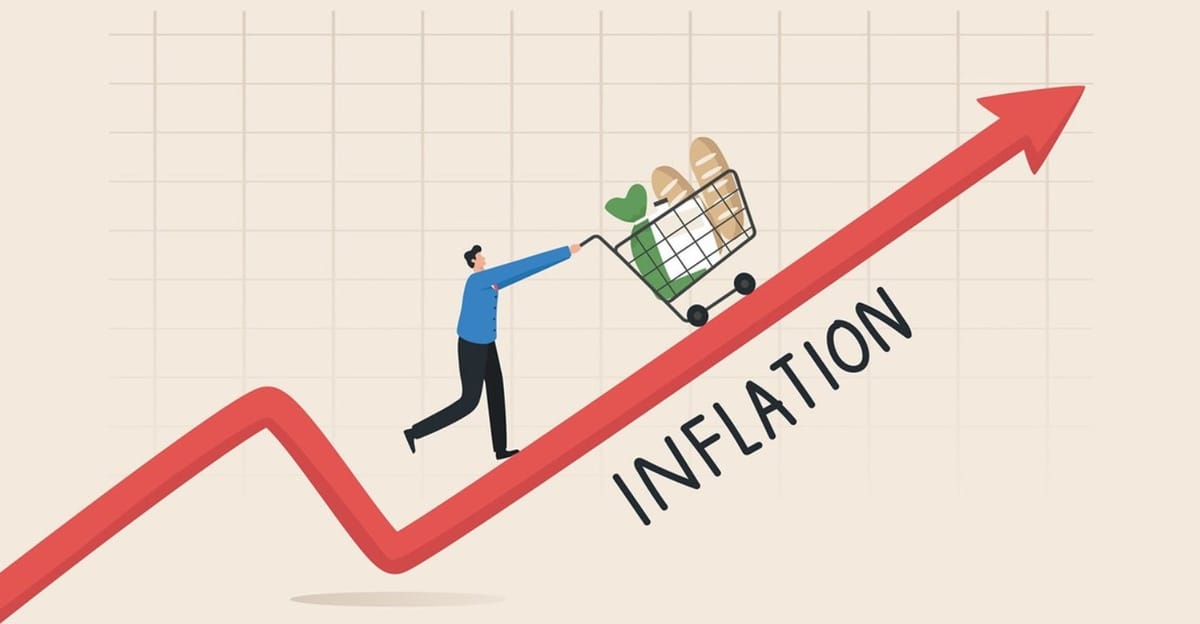What Is the Impact of Inflation on My 401(k)?

Inflation is a silent adversary that affects the purchasing power of money over time. When it comes to retirement savings, such as your 401(k), the implications of inflation can be profound. This article explores how inflation impacts your 401(k) and offers actionable strategies to mitigate its effects.
Understanding Inflation and Its Core Principles
What Is Inflation?
Inflation refers to the gradual increase in prices of goods and services over time, leading to a decline in purchasing power. For instance, if the annual inflation rate is 3%, something that costs $100 today will cost $103 a year from now.
How Is Inflation Measured?

Inflation is typically measured using indexes like the Consumer Price Index (CPI) or the Producer Price Index (PPI). These indexes reflect changes in the price of a basket of goods and services consumed by households or produced by businesses.
The Importance of Inflation in Financial Planning
Inflation is a critical factor in financial planning because it affects:
- The cost of living during retirement.
- The future value of your savings.
- Investment returns and retirement withdrawal strategies.
How Inflation Impacts Your 401(k)

Erosion of Purchasing Power
One of the primary effects of inflation on your 401(k) is the erosion of purchasing power. Even if your retirement savings grow, inflation can diminish their real value, meaning you can buy less with the same amount of money in the future.
Impact on Investment Returns
Inflation-adjusted returns, also called real returns, are critical when evaluating your 401(k) investments. High inflation can reduce real returns, even if your nominal returns appear strong.
Reduced Fixed Income Benefits
Retirees relying on fixed-income investments in their 401(k) may struggle during periods of high inflation. For example, bonds and money market funds offer lower yields that may not keep pace with rising costs.
How Inflation Affects Retirement Timing
Delaying Retirement Due to Inflation
When inflation spikes, many workers may have to delay retirement to compensate for the reduced value of their savings. Increased living costs and higher healthcare expenses are key contributors.
Accelerating Withdrawals
Inflation may force retirees to withdraw more from their 401(k) accounts than planned, risking the depletion of their funds too quickly.
Impact on Social Security Benefits
While Social Security provides Cost of Living Adjustments (COLA), these adjustments may not fully offset inflation's impact, placing more pressure on your 401(k).
Strategies to Protect Your 401(k) From Inflation
1. Diversify Your Investments
Diversification is key to protecting your 401(k) against inflation. Consider allocating funds to:
- Stocks: Equities often outpace inflation over time.
- Treasury Inflation-Protected Securities (TIPS): These are government bonds indexed to inflation.
- Commodities: Investments in gold or oil can serve as a hedge against inflation.
2. Opt for Inflation-Resistant Assets
Including real estate, REITs (Real Estate Investment Trusts), or commodities in your 401(k) portfolio can provide a buffer during inflationary periods.
3. Increase Contributions
By increasing your 401(k) contributions, you can counterbalance inflation and ensure your retirement savings grow in real terms.
4. Leverage Employer Matching
Take full advantage of your employer’s matching contributions to maximize your savings. This "free money" can offset some of the erosion caused by inflation.
5. Reassess and Rebalance Regularly
Periodic rebalancing of your 401(k) portfolio ensures that your investment strategy aligns with current inflationary trends and market conditions.
How Compound Interest Can Help Offset Inflation
The Role of Compound Growth
Compound interest is one of the most powerful tools to combat inflation. By reinvesting earnings, your 401(k) balance can grow exponentially, offsetting inflation's effects over the long term.
Time Horizon Matters
The earlier you start saving in your 401(k), the more time compound interest has to work its magic. For instance, starting at age 25 instead of 35 can result in significantly higher retirement savings.
Tax Implications of Inflation on 401(k)
Impact on Tax-Deferred Accounts
Inflation can influence the real value of tax-deferred savings. While your contributions grow tax-free, withdrawals during retirement are subject to taxation, which can be a larger burden during inflationary periods.
Tax Planning Strategies
To minimize tax impacts:
- Consider Roth 401(k) contributions for tax-free withdrawals in retirement.
- Explore tax-efficient withdrawal strategies that reduce your taxable income.
Real-Life Example: Inflation's Impact on a 401(k)
Imagine a 30-year-old saving $500 per month in a 401(k) with a 7% annual return. After 30 years, their balance would be approximately $612,000. However, with a 3% annual inflation rate, the real value of this amount would be closer to $250,000 in today’s dollars.
This highlights the importance of adjusting for inflation when planning for retirement.
The Relationship Between Inflation and Market Volatility
Inflation’s Influence on Stocks and Bonds
Inflation often leads to market volatility. Rising inflation typically pushes interest rates higher, which can negatively impact bond prices and certain stock valuations.
Strategies to Navigate Volatility
- Stay Invested: Avoid knee-jerk reactions to market downturns.
- Focus on Long-Term Goals: Keep your investment horizon in mind to ride out short-term fluctuations.
FAQs
What is inflation, and how does it affect my 401(k)?
Inflation is the rise in the cost of goods and services over time, which reduces the purchasing power of your 401(k) savings. Higher inflation can erode real returns, requiring proactive strategies to preserve your savings.
Can I protect my 401(k) from inflation?
Yes, by diversifying investments, including inflation-resistant assets, and periodically rebalancing your portfolio, you can mitigate inflation’s effects on your 401(k).
Are stocks a good hedge against inflation?
Historically, stocks have provided returns that outpace inflation, making them a strong component of an inflation-resistant portfolio.
What role does compound interest play in fighting inflation?
Compound interest grows your savings exponentially, helping offset the decline in purchasing power caused by inflation over the long term.
Should I adjust my 401(k) contributions during inflationary periods?
Increasing your contributions during inflationary periods can help ensure your savings grow in real terms, maintaining your purchasing power.
Does inflation affect retirees differently?
Yes, inflation can disproportionately affect retirees by increasing living expenses and eroding fixed-income investments.
Conclusion
Inflation is an unavoidable economic reality, but its impact on your 401(k) doesn’t have to be catastrophic. By understanding inflation's effects and implementing strategic adjustments, you can preserve the value of your retirement savings and maintain your financial security. Start by diversifying your portfolio, rebalancing regularly, and leveraging the power of compound interest to build a robust retirement plan that stands the test of time.




